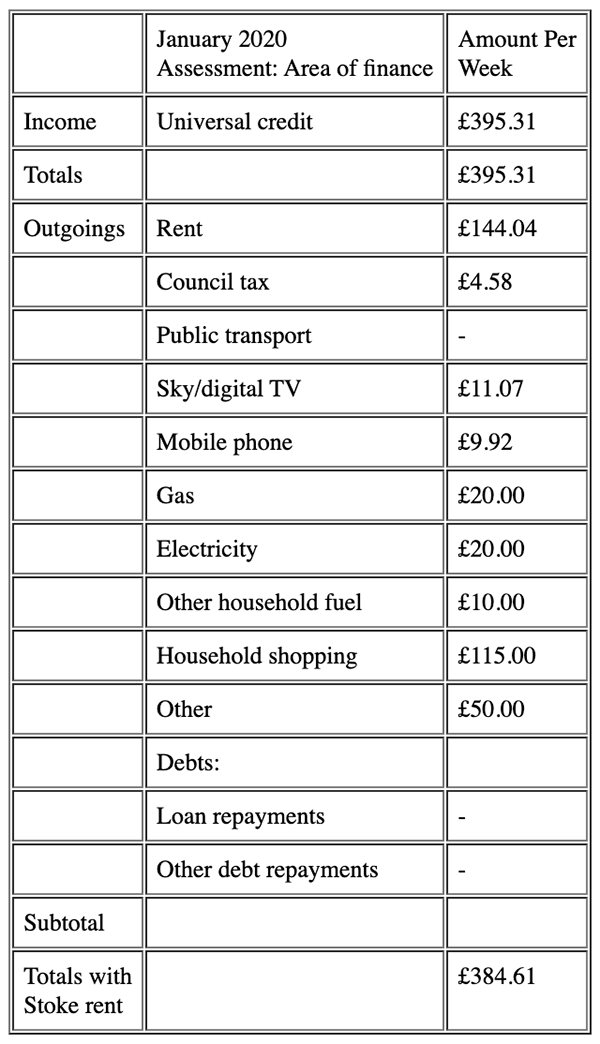You are viewing 1 of your 1 free articles
London council risked plunging homeless family into debt by moving them 160 miles away, court finds
A London council risked plunging a mother and her young family into debt by moving them from temporary accommodation to a private rented property 160 miles away, a judge has found.
In a newly published Court of Appeal ruling, a judge said that Waltham Forest Council failed to properly assess the affordability of a private tenancy in Stoke-On-Trent when moving Lisa Paley and her family from temporary accommodation in the borough.
The judge said the decision was “inevitably going to plunge [the mother] even further into debt” and would “put her and her children at risk of once again being rendered homeless”.
This was because the council “omitted” the cost of “reasonable” expenses, such as public transport, when drawing up a theoretical weekly budget for the family, the judgment added.
The appeal concerns Ms Paley and her four children who the council threatened to evict from their temporary accommodation in London if they did not move to a private rented sector home in Stoke.
Ms Paley first applied to Waltham Forest Council as homeless in 2016 after she and her family were evicted from the home they had lived in for eight years.
The family was placed in temporary accommodation in Bexley, however Ms Paley fell into arrears after the Discretionary Housing Payments she was receiving were stopped in 2019.
In 2020, Ms Paley received a letter from Waltham Forest Council which said it was discharging its duty to house her by offering a 24-month private sector tenancy in Stoke.
The council determined that the property was affordable for the family based on an exercise it carried out that compared the rent with Ms Paley’s outgoings.
According to the judgement, the council found the family would have a “surplus” of £10.70 per week, however the calculation made no allowance for public transport and rounded down the figures Ms Paley had provided for utilities and shopping
It also included no allowance for the repayment of Ms Paley’s debt and instead allowed for £50 per week to be spent on “other”, which would have to cover things such as clothing and school requirements for the family of five, the judgement said.
According to the ruling, the council’s lawyer argued in court that it was “unreasonable” for Ms Paley to have transport costs included in her budget “given that one of the schools which was able to offer a place to one of the children was within half an hour’s walk from the property”.
“How else is Ms Paley to get the shopping for a family of five home from one of the cheaper supermarkets other than by public transport or taxi?” the judge said.
The judge said Waltham Forest Council “failed to prepare a budget by reference to the needs of this particular applicant”.
“Far from there being sufficient flexibility in the budget to allow, for example, routine but frugal use of public transport and the occasional visit to her family, the affordability budget provided by the local authority was inevitably going to plunge Ms Paley even further into debt and as a consequence put her and her children at risk of once again being rendered homeless,” the judge said.
Moreover, if Ms Paley became homeless again, she would likely to have been found to be ‘intentionally homeless’ for leaving a property that had been deemed to be affordable, the judgement added.
Ms Paley and her family are no longer living in Stoke and have moved to private rented accommodation in the South of England.
The judgement means the council cannot find that Ms Paley’s decision to leave the Stoke property has resulted in her becoming intentionally homeless.
Louise Mitchell, cabinet member for housing and homelessness prevention at Waltham Forest Council, said: “It’s a national scandal that benefits and wages don’t cover the cost of rent in London. We call on the government to look at this ruling as further evidence of the need for change.
“When we help families at risk of being made homeless, we cannot place them where they can’t afford to pay their rent and buy day-to-day essentials.
“We are proud of our housing record. The borough is undergoing the largest programme of homebuilding in a generation. We are doing everything we can to get as many new homes built at a rent people can afford. We call upon the government to do more to tackle this crisis that affects millions up and down the country.”
Sign up for our Council Focus newsletter
Already have an account? Click here to manage your newsletters












